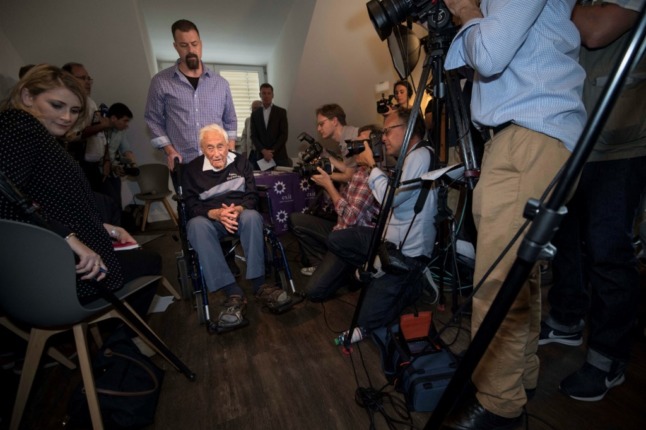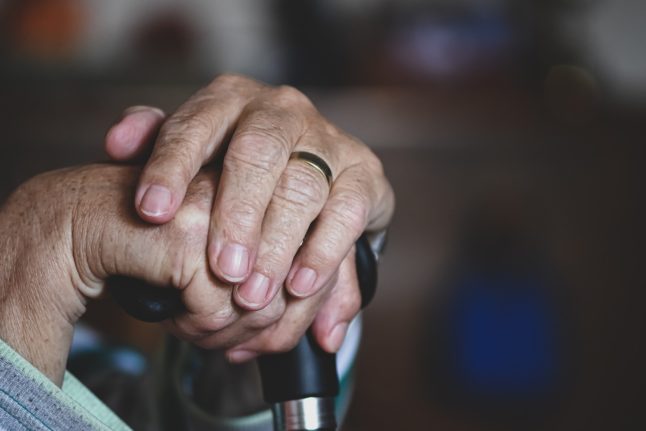Switzerland’s assisted suicide scheme allows people to take their own lives with the assistance of medical professionals.
The scheme is relatively unique internationally, with few other countries allowing the practice – particularly when it comes to non-residents.
New guidelines laid out by the Swiss Academy of Medical Sciences however, assisted suicide practices could be tightened in Switzerland.
These guidelines include a more stringent test for whether you should be allowed assisted suicide services, along with a longer waiting period and more meetings with doctors.
Here’s what you need to know.
What are the rules for assisted suicide in Switzerland?
One important distinction to make is between euthanasia and assisted suicide. Assisted suicide still requires the person in question to administer the suicide themselves, while euthanasia is where a doctor takes this final step.
Euthanasia is not permitted in Switzerland, while assisted suicide is allowed for both locals and foreigners.
Switzerland: What is the difference between assisted suicide and euthanasia?
Assisted suicide is legal in Switzerland on compassionate grounds.
While article 115 of the Swiss penal code prohibits assisted suicide for “self-serving reasons” and article 114 prohibits “causing the death” of a person for “commendable motives, and in particular out of compassion for the victim”, assisted suicide for non-selfish reasons is not specifically prohibited as long as certain conditions are met.
What are the rule changes and what does it mean for foreigners?
In May, the Swiss Academy of Medical Sciences updated its guidelines for assisted suicide as part of its deontological code.
The update added in four main points:
- Doctors must now have two consultations with patients which must be at least two weeks apart.
- The condition must be serious and severe to the point where it is “unbearable”.
- A patient’s environment must be taken into account.
- There is no ethical or medical justification for providing assisted suicide to healthy people.
Importantly, the rules are not binding law on assisted suicide providers in Switzerland. However, they have since been adopted by the Swiss Medical Association (FMH).
Around 90 percent of Swiss doctors and medical professionals – including those who provide assisted suicide services – are members of the FMH.
FMH members are required to adhere to the FMH code and can be sanctioned if they do not.
What do these changes mean?
A major change under the new guidelines is that people must have some form of illness or condition which is “unbearable”.
Under the previous rules, old age was a valid reason for accessing assisted suicide services, as illustrated by the high-profile case of Australian scientist David Goodall.
Goodall made headlines when he travelled to Switzerland to take his life, saying that while he didn’t have a terminal illness, his quality of life had deteriorated significantly and he wanted to die.
The two-meeting requirement is also a significant change and one which is particularly difficult for foreigners, as it means they will need to stay for at least two weeks in Switzerland at what could be a considerable expense.
Exit spoke out against the changes, saying that they create unnecessary suffering.
“If someone is suffering and wants to die as soon as possible, and I can tell that the decision was well-considered, then a second conversation only causes unnecessary suffering.”
While Exit vowed not to adopt the new guidelines, Exit does not provide services to foreigners.
Dignitas, the largest provider of assisted suicide services to foreigners, has also spoken out against the changes but has as yet not indicated whether they would be adopted.
Can foreigners access assisted suicide?
The main associations administering assisted suicides are Exit, Dignitas, Ex International, and lifecircle.
Exit and Dignitas are the largest groups in Switzerland.
Exit only provides assistance for citizens or long-term residents of Switzerland while Dignitas is the only organisation to provide assisted suicide services to foreigners.
According to Dignitas, assisted suicide is popular among foreigners, with 90 percent of those who received help dying in 2018 coming from abroad. The majority of those who received assisted suicide were German.
In order to access assisted suicide as a foreigner, you will need to become a Dignitas member. This can be done from abroad, provided you are deemed to be of full mental capacity and are an adult.
More information is available at the following link.
EXPLAINED: How foreigners can access assisted suicide in Switzerland



 Please whitelist us to continue reading.
Please whitelist us to continue reading.
Member comments